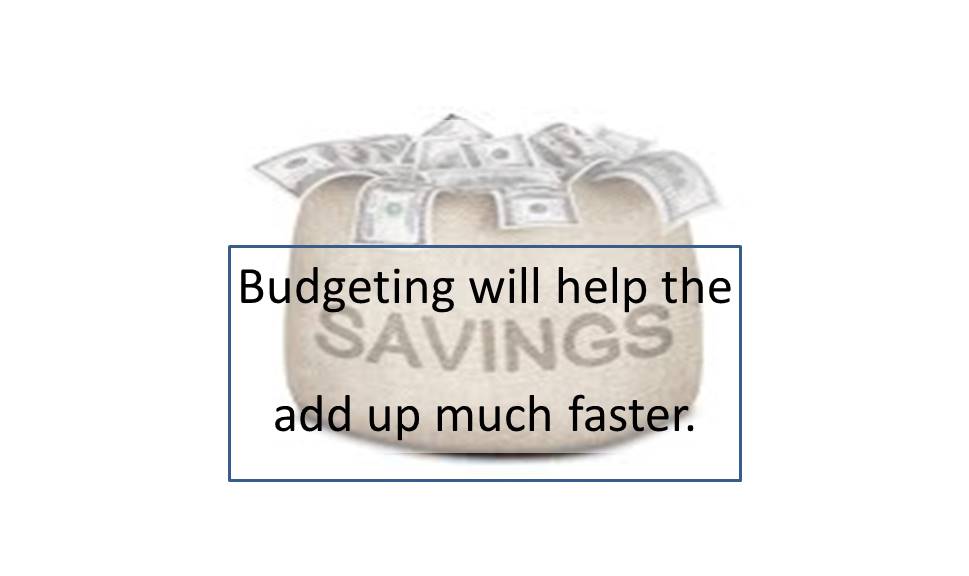Budgeting-Setting Your Financial Goals – This is part of the budget plan…to accomplish your goals… See the beginning post here- Ultimate Budget Goals To Control Your Finances
Setting financial goals is an essential step in the budgeting process. Goals give you something to work towards and help you stay motivated and focused on your financial journey. When setting financial goals, it’s important to make them specific, measurable, achievable, relevant, and time-bound (SMART).
For example, instead of setting a vague goal like “save money,” make it more specific by saying; “Save $5,000 for a down payment on a house within the next 12 months.”
This goal is specific, measurable (you can track your progress towards saving $5,000), achievable (if you set aside $417 per month, you can reach your goal in 12 months), relevant (it aligns with your desire to buy a house), and time-bound (you have set a deadline of 12 months).
Setting SMART goals helps you break down your big financial aspirations into smaller, manageable tasks. It gives you a clear roadmap and allows you to track your progress along the way. Celebrate your achievements as you reach each milestone, and don’t be afraid to adjust your goals as your circumstances change.
Strategies for Saving Money
Saving money is an important part of budgeting. It allows you to build an emergency fund, save for large purchases, and invest for the future. Here are some strategies for saving money:
1. Automate your savings: Set up an automatic transfer from your checking account to your savings account each month. This way, you won’t have to remember to save, and the money will be out of sight, out of mind.
2. Cut back on discretionary expenses: Take a close look at your budget and identify areas where you can cut back. Do you eat out frequently? Cut back on dining out and cook more meals at home. Do you have subscriptions or memberships that you don’t use? Cancel them.
3. Shop smart: Before making a purchase, do your research and compare prices. Look for sales, discounts, and coupons. Consider buying used or refurbished items instead of new ones. By being mindful of your spending, you can save a significant amount of money.
4. Negotiate bills and subscriptions: Contact your service providers and negotiate better rates for your bills, such as cable, internet, and insurance. You’ll be surprised how often they are willing to give you a discount to retain your business.
5. Reduce energy consumption: Lower your utility bills by being mindful of your energy consumption. Turn off lights when you’re not using them, unplug electronics when they’re not in use, and adjust your thermostat to save on heating and cooling costs.
6. Save on groceries: Plan your meals in advance, make a shopping list, and stick to it. Avoid impulse purchases and buy items in bulk when they’re on sale. Consider using coupons or shopping at discount grocery stores to save even more.
By implementing these strategies, you can save money and achieve your financial goals faster.
Budgeting Tools and Apps
There are many budgeting tools and apps available that can help you streamline your budgeting process and track your expenses. These tools offer a range of features, from simple expense tracking to comprehensive budgeting and financial planning. Here are some popular budgeting tools and apps:
1. Mint: Mint is a free budgeting app that allows you to track your expenses, create a budget, and set financial goals. It connects to your bank accounts and credit cards, categorizes your transactions, and provides personalized insights and recommendations.
2. YNAB (You Need a Budget): YNAB is a budgeting app that focuses on giving every dollar a job. It helps you create a budget based on your income and expenses and encourages you to assign each dollar to a specific category. YNAB also offers educational resources and support to help you improve your financial literacy.
3. Empower prior Personal Capital: Empower is a comprehensive financial planning tool that allows you to track your net worth, manage your investments, and plan for retirement. It offers a holistic view of your finances and helps you make informed decisions about your money.
4. PocketGuard: PocketGuard is a budgeting app that focuses on helping you stay on top of your spending. It connects to your bank accounts, categorizes your transactions, and provides an overview of your cash flow. PocketGuard also helps you identify areas where you can save money and avoid overspending.
These are just a few examples of the budgeting tools and apps available. Explore different options and find one that suits your needs and preferences.
Tips for Sticking to Your Budget
Creating a budget is the first step, but sticking to it is equally important. Here are some tips to help you stay on track:
1. Set realistic expectations: Be honest with yourself about your spending habits and set realistic goals. If your budget is too strict, you’re more likely to give up. Aim for progress, not perfection.
2. Find accountability: Share your financial goals and budgeting journey with a trusted friend or family member who can hold you accountable. Having someone to check in with regularly can help keep you motivated and focused.
3. Track your progress: Regularly review your budget and track your progress toward your financial goals. Celebrate your achievements and make adjustments as needed. Seeing your progress will motivate you to continue.
4. Find alternatives: Look for affordable alternatives to your current expenses. For example, if you love going to the movies, consider renting movies or using a streaming service instead. Look for free or low-cost activities to replace expensive hobbies.
5. Reward yourself: Set milestones for your financial goals and reward yourself when you reach them. Treat yourself to a small indulgence or a special experience. Celebrating your achievements will make budgeting more enjoyable.
6. Stay motivated: Keep your financial goals in mind and remind yourself of the benefits of budgeting. Visualize your future financial success and the freedom it will bring. Stay focused on the long-term benefits rather than short-term sacrifices.
By implementing these tips, you can stay motivated and committed to your budgeting journey.
How to Adjust Your Budget as Needed
Your budget is not set in stone and should be adjusted as your financial situation changes. Life events, such as a job change, marriage, or having children, can all impact your income and expenses. Here are some tips for adjusting your budget:
• Review your budget regularly: Set aside time each month to review your budget and track your spending. Look for areas where you may be overspending or where you can make adjustments.
• Reassess your financial goals: If your circumstances change, reassess your financial goals and adjust them as needed. Update your budget to align with your new goals and priorities.
• Consider a budgeting method that suits your new situation: If your income changes, you may need to switch to a different budgeting method. For example, if you start freelancing or running a business, you may need to switch to a zero-based budget to account for fluctuating income.
• Prepare for unexpected expenses: Life is full of surprises, so it’s essential to have a plan for unexpected expenses. Build an emergency fund to cover unexpected costs, such as medical bills or car repairs.
• Seek professional advice: If you’re unsure how to adjust your budget or need help navigating a major financial change, consider seeking advice from a financial planner or advisor. They can provide personalized guidance based on your unique situation.
Remember, budgeting is a dynamic process, and your budget should evolve as your circumstances change. By regularly reviewing and adjusting your budget, you can ensure that it remains effective and aligned with your goals.



